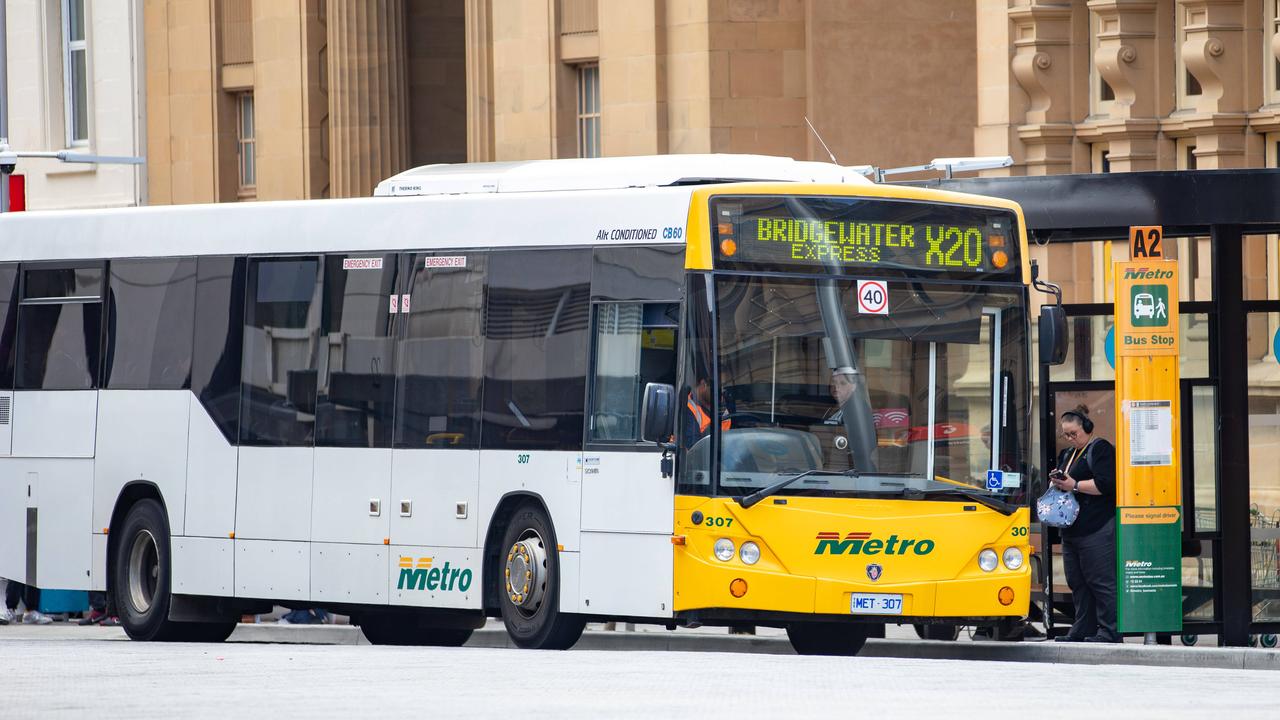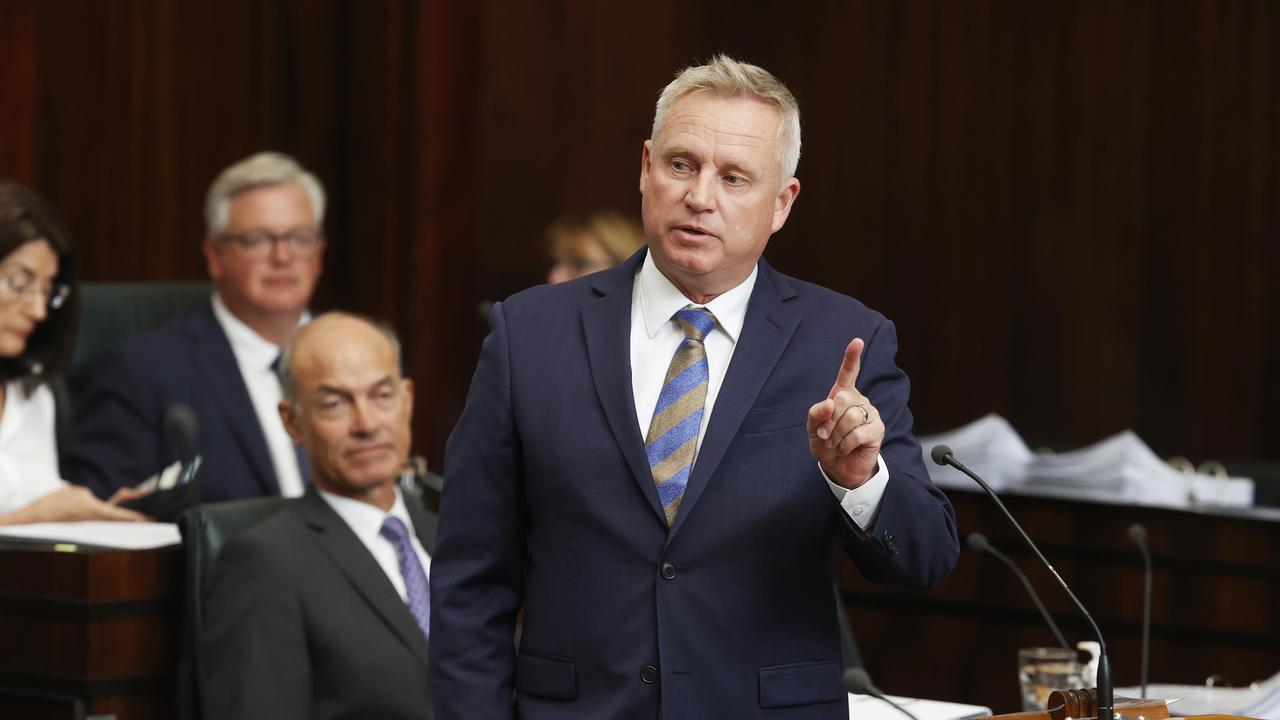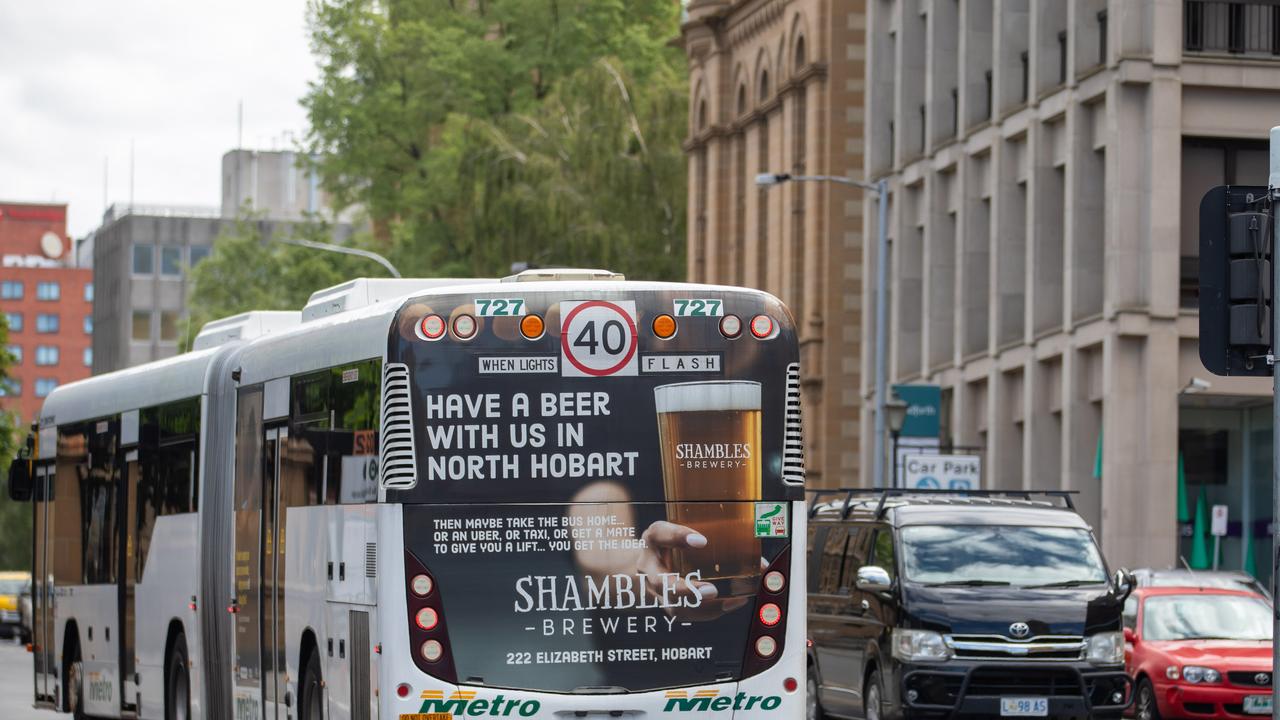Premier flags possible privatisation of Metro, MAIB to pay down mountain of state debt
The state government is considering selling off some of its businesses to pay down soaring debt.

The state government is considering selling off some of its businesses — including the state’s Motor Accidents Insurance Board and public transport operator Metro to pay down soaring debt.
Premier Jeremy Rockliff revealed the privatisation push in his State of the State address on Tuesday.
The government is struggling with mounting debt — heading towards $9.6bn in four years — after repeated blowout deficit budgets on top of pandemic and Commission of Inquiry costs.
Mr Rockliff has already flagged cutting staffing levels in the public service by around six per cent, but has steadfastly ruled out raising taxes.
“Hydro will always remain in public ownership. But what about the others?” he said in state parliament.

“Is government ownership really in the interests of the Tasmanian community? It’s a good question that deserves consideration.
“That’s why we will be carrying out a detailed assessment of the benefits of moving several entities out of government ownership.
“We will consider whether the Motor Accidents Insurance Board would do a better job freed from the shackles of government ownership. It’s happened in nearly every other state.
“Likewise, Metro. Is it most efficient as a state-owned company?
“We will also consider a 99-year lease of TasNetworks to retain ownership but bring in the expertise and the corporate culture to drive the organisation forward.”
Tasmania has six government business enterprises and eight state-owned companies, including Hydro Tasmania and Sustainable Timber Tasmania and Aurora Energy.
It has already indicated it is considering merging TasPorts, TT-Line and TasRail and privatising some of the functions of the Public Trustee.
Previous state governments privatised the Trust Bank, Hobart Airport, Tasmania’s gas distribution, TOTE Tasmania and — for a time — rail services.
An attempt to privatise Aurora Energy’s residential and small business operations failed through lack of interest in 2013.
Mr Rockliff said other businesses could be up for sale.
“We will consider whether the Tasmanian taxpayer really needs part ownership of Momentum Energy, a largely mainland electricity retailer and whether the Land Titles Office really needs to be owned by the government” he said.

“It’s worth taking a good look at whether there’s a better way to deliver those services to Tasmanians.
“I know some will say all these organisations return dividends to the Tasmanian government – and that’s a fair point but it stands to reason if they can provide a better outcome for Tasmanians, why keep them under government ownership?”
Mr Rockliff said he would ask economist Saul Eslake to conduct the review and he said the government would create a “Sensible Pathway to Surplus Future Fund” for the state.
“It will work in much the same way as an offset account on your home loan, paying down debt whilst investing for the future,” he said.
Shadow Treasurer Josh Willie said Tasmanians would end up paying more for their car registration, electricity and public transport
“This is a fire sale because Premier Rockliff can’t manage money. Our state’s finances have never been worse.
“It’s the wrong approach, it’s going to end in higher prices for Tasmanians. Privatisation always does.
“Back in the 90s, there was a minority Liberal government, they tried to sell the Hydro because they were drowning in debt.
“Now Premier Rockliff is drowning in debt, and he’s trying to sell everything else.
“The debt collectors are at the front door and he’s trying to sell the family car — that’s how badly he’s managed the state’s finances.
Greens leader Rosalie Woodruff described the move as being straight out of the Trump playbook and reflected the rise of the right wing in the Liberal Party.”
“He is cutting the guts out of the public service and privatising the GBE’s,” she said.
“He’s giving a free rein to massive corporations.
“He’s leaving the most vulnerable people without protection and giving the responsibility for their care and their service provision to private for profit companies.”





